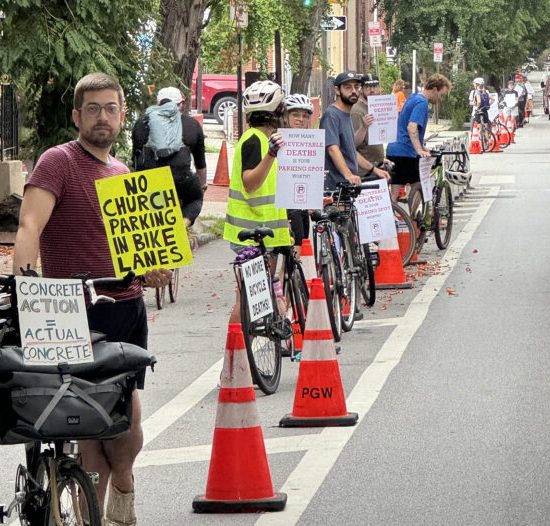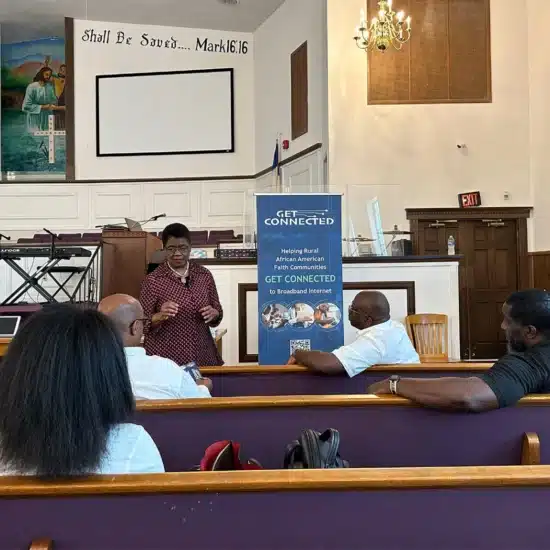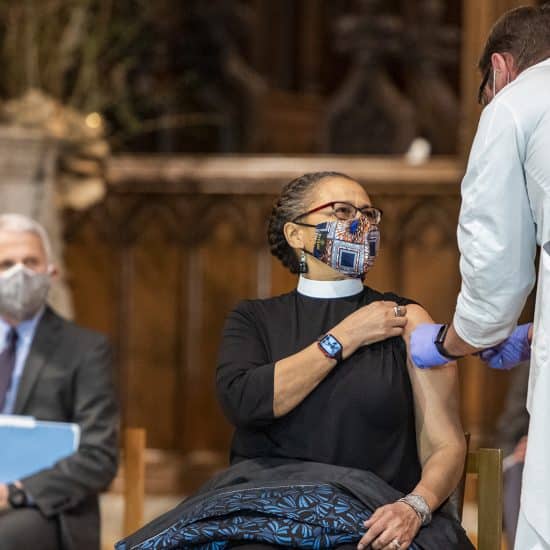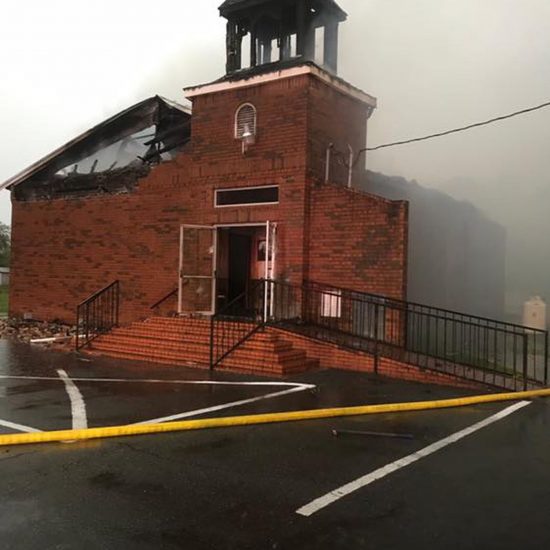Introducing unfamiliar practices to church members can be challenging, but congregations often are far less resistant than expected, according to some pastors who have tried it.
“I think people are hungry for ritual, especially those who don’t come from a Christian tradition which has them,” said Sterling Severns, pastor of Tabernacle Baptist Church in Richmond, Va. “Communion is the closest many Baptists come to ritual. But there’s something that is inside Scripture, a way that God uses ritual and rhythm to help people understand something about God’s nature.

|
“I think that instinct is also inside us and we don’t know it,” said Severns, who introduced his congregation to Lent not long after he was called there. “And sometimes when we start sharing these rituals with individuals unfamiliar with it, it taps into something they didn’t even know they were hungry for. When we bring ritual to the rhythm of worship, it’s one of the things that brings us together.”
Wide acceptance of untried spiritual disciplines can succeed if a few factors are present, say pastors and other church leaders.
Start with the familiar. Author and pastor Rick Warren has popularized the significance of a 40-day period of spiritual development with his “40 Days of Purpose” campaign and through several books, said Chuck Warnock, pastor of Chatham (Va.) Baptist Church. And it’s biblical, he adds, noting that spans of 40 days played important roles in the lives of Noah, Moses, Elijah, Jonah and Jesus.
“I think a church that doesn’t want to observe Lent, per se, could easily plan 40 days of anticipation leading to the Easter Sunday celebration,” Warnock said.
Phyllis Tickle, author of The Great Emergence and several books on Christian spirituality, advocates the Divine Office or “praying the hours” — prayers to be recited at set times of the day. Though the practice has roots in both Jewish worship and the Christian monastic tradition, its biblical basis is compatible with evangelical instincts, Tickle said.
In fact, the Divine Office has such clear biblical precedent that “I don’t know how in the world you can be an evangelical and not adopt it,” she said. “Daniel prayed three times a day at the same time and was tossed into the lion’s den as a result. Jesus prayed at specific hours because he was a good Jew. The disciples were on their way to the Temple for regular afternoon prayers at 3 when they encountered the handicapped man. Peter went to the roof for the noon prayer, where he had the vision of the sheet. They were all praying the hours.”
Praying the “canonical hours” also results in the unceasing prayer mentioned in Scripture, she said.
“When I stop to pray at 6 in the morning or at 9 or noon or 3 or sunset or bedtime, when I finish, I hand the prayers on to Christians in the next time zone, and then they pass it on. It creates a constant cascade of prayer.”
Even if Lent itself is uncharted territory for some church members, the emotions it evokes will have the “ring of truth,” said Keith Herron, pastor of Holmeswood Baptist Church in Kansas City, Mo.
“I’m struck by the mystery that occurs in an Ash Wednesday service in the invitation to come forward to receive a blessing and the imposition of ashes,” he said. “And the humanity is very powerful. It’s at the end of a working day. Their foreheads are greasy. They have the grime of the day on their faces. And we’re invited to touch them. I can’t explain the mystery of it, but it’s very powerful to them. I’m moved by the fact that they are moved.”
It’s not a package deal. Adopting spiritual disciplines long associated with the liturgical tradition doesn’t require reorienting a church’s entire worship patterns, say many pastors. Choose those practices which work and avoid rigidity, they urge.
“We’re not a liturgical church and I don’t think our members associate Lenten practices with Catholic or Episcopal liturgical forms of worship,” said Lynn Turner, senior associate pastor at First Baptist Church in Richmond, Va., who coordinates many of the churches services during Lent. “The practices we’ve adopted simply connect them with God. People say, ‘I need this in my life.’ “
At Tabernacle Baptist, worship services during Lent and at Easter often involve a procession of ministers and choir. “We process carrying the Christ candle, but we don’t robe up,” said pastor Severns. “Some of our folks are in jeans and flip-flops. I wear a suit and bow tie. And we sing traditional Baptist hymns.”
At Mosaic, a congregation in Austin, Texas, with Baptist links and roots in Austin’s artistic community, worship is an unexpected combination of informal dress, alternative (and original) folk music and liturgical practices. The service, held each Sunday at 5 p.m., is called simply “liturgy.” Pastor Don Vanderslice begins each sermon with the ancient greeting, “The Lord be with you.” His diverse congregation responds, “And also with you,” and following the public reading of Scripture, worshippers respond, “Thanks be to God.”
“Our liturgy is designed to … [bring] together the ancient signs and symbols of our tradition along with the visual arts, scripture reading, storytelling and a music created out of our own community,” the church writes in a defining web statement. “We at Mosaic follow this rich tradition of diversity and orthodoxy, combining elements of the ancient church while interpreting the liturgical expression for our own local context.”
Vanderslice said adopting aspects of ancient Christian tradition keeps his church grounded while maintaining a counter-cultural perspective.
“I always found it odd that in the Baptist tradition in which I grew up, we were so devout in celebrating the secular calendar — Mother’s Day, Father’s Day, Valentine’s Day. If there was a greeting card for it, we dedicated a Sunday to it. But if there was a day that had been embraced by Christians for about 2,000 years which said something about what it means to be church, we dismissed it.”
Start ‘em young. Seminary and divinity school students are well placed to explore unfamiliar spiritual practices and develop ways to integrate them in the churches they serve in contextual appropriate ways.
Many students at Hardin-Simmons University’s Logsdon Seminary in Abilene, Texas, will serve West Texas churches that might view observance of Lent — and the liturgical Christian calendar in general — as too high church and Catholic-influenced for their tastes, noted Bill Tillman, who holds the T.B. Maston Chair of Christian Ethics there and teaches spiritual formation.
Even so, those students can help their churches incorporate into worship the spiritual disciplines associated with Lent, he noted.
Early Christians “saw the value of introspection and confession,” said Tillman. “They practiced fasting — self-denial of things that get in the way of one’s relationship with God. They saw these as ways to get into a better frame of mind to celebrate the resurrection.”
-30-
Robert Dilday is managing editor of the Virginia Religious Herald. Ken Camp, managing editor of the Texas Baptist Standard, contributed to this story.






